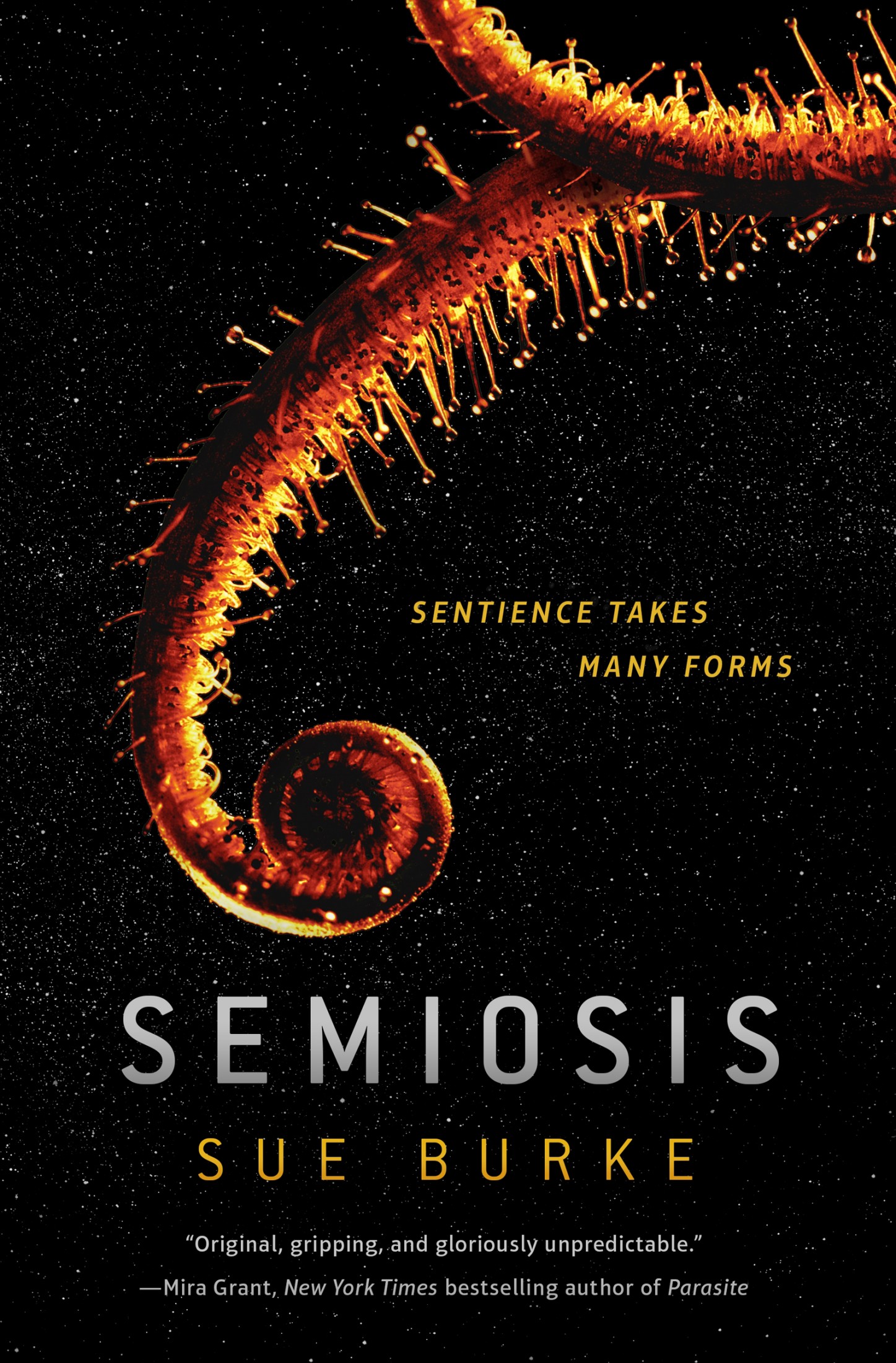Kelson Reads reviewed Semiosis by Sue Burke
Not many books have chapters narrated by bamboo.
5 stars
Semiosis is a fascinating take on space colonization, intelligence, and language. The multi-generational story starts with the founding of a small human colony on an alien world where, as they soon discover, plants have evolved intelligence and use animals for tools. Needless to say, things don't work out the way the colonists intended, and their descendants find ways to adapt to a world where they can't forget that they're only one part of the ecosystem -- and not a necessary part, either. And the plants have their own ideas!
Each chapter picks up a character from a different generation. Burke gives them all distinct voices and attitudes, and while each looks back at the previous narrator from this new perspective, their stories are their own.
I found the middle chapters the most interesting. At this point the colony has established itself, and all the founders have died off, leaving only …
Semiosis is a fascinating take on space colonization, intelligence, and language. The multi-generational story starts with the founding of a small human colony on an alien world where, as they soon discover, plants have evolved intelligence and use animals for tools. Needless to say, things don't work out the way the colonists intended, and their descendants find ways to adapt to a world where they can't forget that they're only one part of the ecosystem -- and not a necessary part, either. And the plants have their own ideas!
Each chapter picks up a character from a different generation. Burke gives them all distinct voices and attitudes, and while each looks back at the previous narrator from this new perspective, their stories are their own.
I found the middle chapters the most interesting. At this point the colony has established itself, and all the founders have died off, leaving only those who grew up on Pax don't have memories of the life they left behind on Earth. These chapters get into how the plants communicate with each other, what kind of worldview sapient bamboo might have, and how the bamboo and the humans figure out how to communicate with each other and negotiate how to share a city and the surrounding area.
The bamboo primarily communicates with other plants through chemical transfer via roots -- much like plants in the real world do, only a lot more complex -- and over long distances by encoding messages in pollen grains. Neither strategy is going to help it talk to humans.
I was reminded at times of Robert Charles Wilson's BIOS and Ursula Le Guin's early novel Planet of Exile. The latter in particular, since both involve human colonists several generations down the line in a one-city colony, incomplete adaptation to local biochemistry, trying to warn people of danger that they dismiss as smaller than it is (oh, they never attack in groups that big!), and an extended siege against the colony in the later chapters. It's kind of weird that I read this book so soon after that one.




